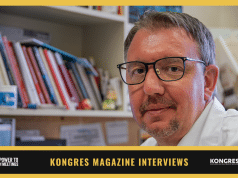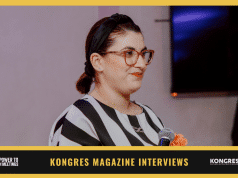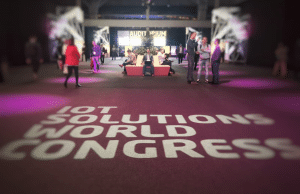Christian Mutschlechner started in the meetings industry back in 1977. After having worked for a PCO Company for 8 years he moved to the Vienna Tourist Board in 1985 and became Director of the Vienna Convention Bureau (a department of the Tourist Board) in 1991. Since that time he re-engineered the Bureau. Christian Mutschlechner is former ICCA President, teaches at universities and lectures at various industry events.
According to ICCA statistics Vienna hosted 154 congresses fulfilling the ICCA criteria in 2010. Do you have any data covering the events ICCA excludes?
Since 1991, when we started, we have been collecting data about the meetings industry in Vienna. The events counted by ICCA represent only a small portion of the events we register. In 2010 we had a total of 935 national and international congresses.
The Vienna Convention Bureau regularly publishes statistics on economic (and other) effects of the meetings industry. How do you measure these effects? What methods do you use? What is your methodology?
Since 1991 we established a cooperation with the University of Economy. They developed a calculation model to show the economic impact of meetings and events in Vienna. The calculation is based on very extensive research carried out every five years. The most important part are the delegate interviews – 4,500 personalised interviews are made. We also interview exhibitors at meetings. The university talks to organisers and gets the real budget data for the events and finally we talk to the agencies (PCOs etc.) involved in handling businesses to see what else delegates spend.
How do you collect the data? Are the sources of your data meeting participants or meeting suppliers?
The most important source today are the congress organisers themselves – so the associations, national or international. The second source are the hotels in Vienna, providing – on a confidential basis – data about corporate events each month. Every three months we get information from the PCOs and business agencies on the business they handled. And finally, we constantly continue our research online.
How long have you been measuring the economic (and other) effects of the meetings industry? Could you highlight some trends you picked up in this period?
We started in 1991 and achieved a consolidated result etc. 4-5 years later. Some of the trends include:
- Dramatic decrease of accompanying persons: in 1991 0,6 acc. persons per delegate, by 2010 this had fallen to 0,18% acc. persons per delegate;
- Social programs are becoming nonexistent;
- Delegates do not stay in the city longer than the duration of the event;
- Average stay reduced to a maximum of the duration of the event.
Why do you think such research is important?
There is no doubt that everybody playing a role in the meetings industry should be aware of its importance for a destination and the economy. The logical centre of knowledge should be the convention bureau, guaranteeing confidential data handling. Economic evaluation helps a lot when it comes to investments, but also proves how many jobs are secured by the meetings industry – not to forget the tax income for the state, regions and cities.
Can you briefly sketch the economic (and other) effects of the meetings industry in Vienna?
In 2010, a total of 935 national and international congresses attracting 305,608 delegates and requiring 1,128,901 bed-nights added €652.09 million to gross domestic product and generated €182.34 million in tax revenue. This in turn secured 12,204 jobs. In the year 2010 congress destination Vienna benefited from the meetings industry to the tune of €21.99 million in tax revenue.
How do you use the survey result in running the convention bureau?
It’s a ongoing piece of reference material, nowadays also increasingly used by politicians.













